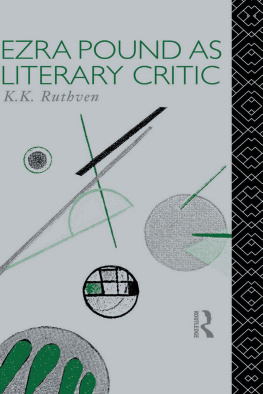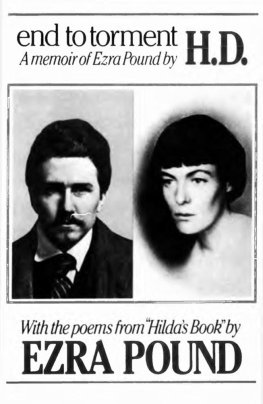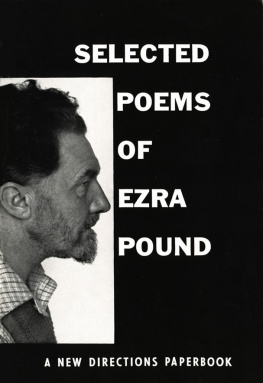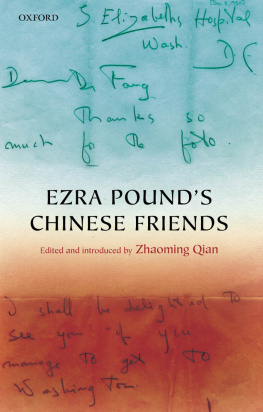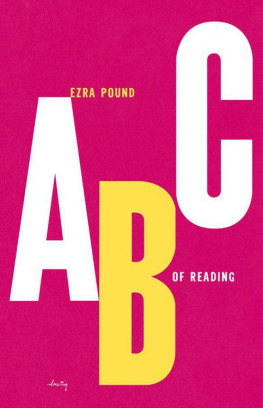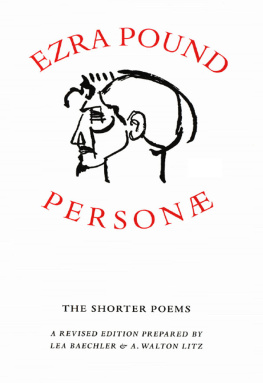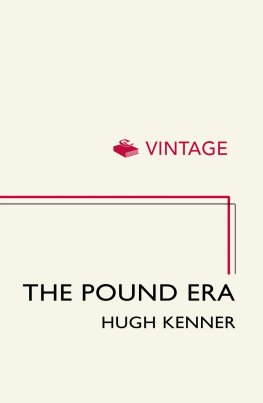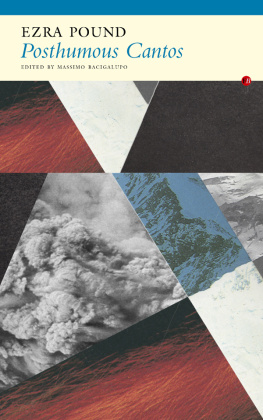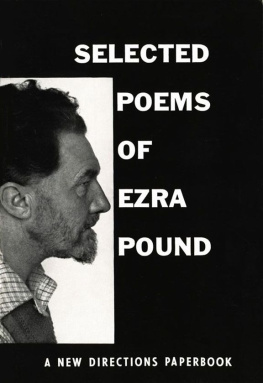Emeritus Professor K K Ruthven - Ezra Pound As Literary Critic
Here you can read online Emeritus Professor K K Ruthven - Ezra Pound As Literary Critic full text of the book (entire story) in english for free. Download pdf and epub, get meaning, cover and reviews about this ebook. year: 2022, publisher: TaylorFrancis, genre: Art. Description of the work, (preface) as well as reviews are available. Best literature library LitArk.com created for fans of good reading and offers a wide selection of genres:
Romance novel
Science fiction
Adventure
Detective
Science
History
Home and family
Prose
Art
Politics
Computer
Non-fiction
Religion
Business
Children
Humor
Choose a favorite category and find really read worthwhile books. Enjoy immersion in the world of imagination, feel the emotions of the characters or learn something new for yourself, make an fascinating discovery.
- Book:Ezra Pound As Literary Critic
- Author:
- Publisher:TaylorFrancis
- Genre:
- Year:2022
- Rating:5 / 5
- Favourites:Add to favourites
- Your mark:
- 100
- 1
- 2
- 3
- 4
- 5
Ezra Pound As Literary Critic: summary, description and annotation
We offer to read an annotation, description, summary or preface (depends on what the author of the book "Ezra Pound As Literary Critic" wrote himself). If you haven't found the necessary information about the book — write in the comments, we will try to find it.
Ezra Pound As Literary Critic — read online for free the complete book (whole text) full work
Below is the text of the book, divided by pages. System saving the place of the last page read, allows you to conveniently read the book "Ezra Pound As Literary Critic" online for free, without having to search again every time where you left off. Put a bookmark, and you can go to the page where you finished reading at any time.
Font size:
Interval:
Bookmark:

General Editor: Christopher Norris,
University of Wales,
College of Cardiff
A.J.GREIMAS AND THE NATURE OF MEANING
Ronald Schleifer
CHRISTOPHER CAUDWELL
Robert Sullivan
FIGURING LACAN
CRITICISM AND THE CULTURAL UNCONSCIOUS
Juliet Flower MacCannell
HAROLD BLOOM
TOWARDS HISTORICAL RHETORICS
Peter de Bolla
F. R. LEAVIS
Michael Bell
POSTMODERN BRECHT
A RE-PRESENTATION
Elizabeth Wright
DELEUZE AND GUATTARI
Ronald Bogue
ECSTASIES OF ROLAND BARTHES
Mary Wiseman
JULIA KRISTEVA
John Lechte
GEOFFREY HARTMAN
CRITICISM AS ANSWERABLE STYLE
G.Douglas Atkins
INTRODUCING LYOTARD
Bill Readings
K.K.Ruthven
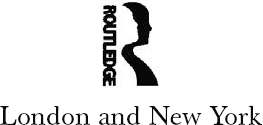
First published 1990
by Routledge
11 New Fetter Lane, London EC4P 4EE
This edition published in the Taylor & Francis e-Library, 2002.
Simultaneously published in the USA and Canada
by Routledge
a division of Routledge, Chapman and Hall, Inc.
29 West 35th Street, New York, NY 10001
1990 K.K. Ruthven
All rights reserved. No part of this book may be reprinted or
reproduced or utilized in any form or by any electronic,
mechanical, or other means, now known or hereafter invented,
including photocopying and recording, or in any information
storage or retrieval system, without permission in writing from the
publishers.
British Library Cataloguing in Publication Data
Ruthven, K.K. (Kenneth Knowles)
Ezra Pound as literary critic. (Critics of the twentieth century).
1. Literature. Criticism. Pound, Ezra, 18851972
I. Title II. Series 801. 95092
Library of Congress Cataloging in Publication Data also available
ISBN 0-203-00900-2 Master e-book ISBN
ISBN 0-203-20599-5 (Glassbook Format)
DOI: 10.4324/9780203009000
To Marion Campbell
The twentieth century has produced a remarkable number of gifted and innovative literary critics. Indeed it could be argued that some of the finest literary minds of the age have turned to criticism as the medium best adapted to their complex and speculative range of interests. This has sometimes given rise to regret among those who insist on a clear demarcation between creative (primary) writing on the one hand, and critical (secondary) texts on the other. Yet this distinction is far from self-evident. It is coming under strain at the moment as novelists and poets grow increasingly aware of the conventions that govern their writing and the challenge of consciously exploiting and subverting those conventions. And the critics for their partsome of them at leastare beginning to question their traditional role as humble servants of the literary text with no further claim upon the reader's interest or attention. Quite simply, there are texts of literary criticism and theory that, for various reasonsstylistic complexity, historical influence, range of intellectual commandcannot be counted a mere appendage to those other primary texts.
Of course, there is a logical puzzle here, since (it will be argued) literary criticism would never have come into being, and could hardly exist as such, were it not for the body of creative writings that provide its raison dtre. But this is not quite the kind of knockdown argument that it might appear at first glance. For one thing, it conflates some very different orders of priority, assuming that literature always comes first (in the sense that Greek tragedy had to exist before Aristotle could formulate its rules), so that literary texts are for that very reason possessed of superior value. And this argument would seem to find commonsense support in the difficulty of thinking what literary criticism could be if it seriously renounced all sense of the distinction between literary and critical texts. Would it not then find itself in the unfortunate position of a discipline that had willed its own demise by declaring its subject non-existent?
But these objections would only hit their mark if there were indeed a special kind of writing called literature whose difference from other kinds of writing was enough to put criticism firmly in its place. Otherwise there is nothing in the least self-defeating or paradoxical about a discourse, nominally that of literary criticism, that accrues such interest on its own account as to force some fairly drastic rethinking of its proper powers and limits. The act of crossing over from commentary to literatureor of simply denying the difference between thembecomes quite explicit in the writing of a critic like Geoffrey Hartman. But the signs are already there in such classics as William Empson's Seven Types of Ambiguity (1928), a text whose transformative influence on our habits of reading must surely be ranked with the great creative moments of literary modernism. Only on the most dogmatic view of the difference between literature and criticism could a work like Seven Types be counted generically an inferior, sub-literary species of production. And the same can be said for many of the critics whose writings and influence this series sets out to explore.
Some, like Empson, are conspicuous individuals who belong to no particular school or larger movement. Others, like the Russian Formalists, were part of a communal enterprise and are therefore best understood as representative figures in a complex and evolving dialogue. Then again there are cases of collective identity (like the so-called Yale deconstructors) where a mythical group image is invented for largely polemical purposes. (The volumes in this series on Hartman and Bloom should help to dispel the idea that Yale deconstruction is anything more than a handy device for collapsing differences and avoiding serious debate.) So there is no question of a series format or house-style that would seek to reduce these differences to a blandly homogeneous treatment. One consequence of recent critical theory is the realisation that literary texts have no self-sufficient or autonomous meaning, no existence apart from their after-life of changing interpretations and values. And the same applies to those critical texts whose meaning and significance are subject to constant shifts and realignments of interest. This is not to say that trends in criticism are just a matter of intellectual fashion or the merry-go-round of rising and falling reputations. But it is important to grasp how complex are the forcesthe conjunctions of historical and cultural motivethat affect the first reception and the subsequent fortunes of a critical text. This point has been raised into a systematic programme by critics like Hans-Robert Jauss, practitioners of so-called reception theory as a form of historical hermeneutics. The volumes in this series will therefore be concerned not only to expound what is of lasting significance but also to set these critics in the context of present-day argument and debate. In some cases (as with Walter Benjamin) this debate takes the form of a struggle for interpretative power among disciplines with sharply opposed ideological viewpoints. Such controversies cannot simply be ignored in the interests of achieving a clear and balanced account. They point to unresolved tensions and problems which are there in the critic's work as well as in the rival appropriative readings. In the end there is no way of drawing a neat methodological line between intrinsic questions (what the critic really thought) and those other, supposedly extrinsic concerns that have to do with influence and reception history.
Next pageFont size:
Interval:
Bookmark:
Similar books «Ezra Pound As Literary Critic»
Look at similar books to Ezra Pound As Literary Critic. We have selected literature similar in name and meaning in the hope of providing readers with more options to find new, interesting, not yet read works.
Discussion, reviews of the book Ezra Pound As Literary Critic and just readers' own opinions. Leave your comments, write what you think about the work, its meaning or the main characters. Specify what exactly you liked and what you didn't like, and why you think so.

